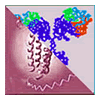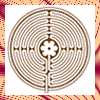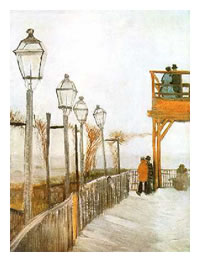 |
||||||||||
Updated: March 17, 2026
Decisions and Consequences
No Do-overs in Real Life
Making Therapy Choices with Eyes Wide Open
 How can you decide if a technology or a clinical trial is right for you? If you are looking for therapeutic benefit
from a new technology (who isn't?) how can you tell if the technology is ready for prime time or even has a hope of
producing practical results? And a related question sometimes assumes great importance: What options are you foregoing
if you elect a given course of action? Here is a review of the yardsticks used by one patient (Harvey) in judging
what therapies made sense for him … without letting misguided hope or corporate and institutional marketing
impact the choice:
Making Therapy Choices with Eyes Wide Open. (3/17/08)
How can you decide if a technology or a clinical trial is right for you? If you are looking for therapeutic benefit
from a new technology (who isn't?) how can you tell if the technology is ready for prime time or even has a hope of
producing practical results? And a related question sometimes assumes great importance: What options are you foregoing
if you elect a given course of action? Here is a review of the yardsticks used by one patient (Harvey) in judging
what therapies made sense for him … without letting misguided hope or corporate and institutional marketing
impact the choice:
Making Therapy Choices with Eyes Wide Open. (3/17/08)
Radioimmunotherapy: Underappreciated Option?
Hot and Cold Monoclonal Antibodies
A Protocol Waiting for a Trial
 There are two approved radioimmunotherapy drugs currently on the market, Bexxar and Zevalin. Unfortunately, both are at risk of becoming unavailable to patients as a result of reimbursement issues. Both drugs have proven effective at producing durable remissions in follicular lymphoma and one, Bexxar, is currently being tested in CLL at the Fred Hutchinson Cancer Research Center. In our article Radioimmunotherapy: Underappreciated Option?, we suggest an approach that may be used in early stage patients to reduce bone marrow involvement and then deliver clean, durable remissions: all in a patient-friendly protocol. We can use your help in getting the research community interested in launching a clinical trial to test the concept.(9/6/07)
There are two approved radioimmunotherapy drugs currently on the market, Bexxar and Zevalin. Unfortunately, both are at risk of becoming unavailable to patients as a result of reimbursement issues. Both drugs have proven effective at producing durable remissions in follicular lymphoma and one, Bexxar, is currently being tested in CLL at the Fred Hutchinson Cancer Research Center. In our article Radioimmunotherapy: Underappreciated Option?, we suggest an approach that may be used in early stage patients to reduce bone marrow involvement and then deliver clean, durable remissions: all in a patient-friendly protocol. We can use your help in getting the research community interested in launching a clinical trial to test the concept.(9/6/07)
Multi-center Controlled Results
Is More Necessarily Better?
A Direct Comparison of FC vs F
 The latest issue of Blood carries an article from the German CLL Study Group
comparing single-agent fludarabine against a combination of fludarabine plus
cyclophosphamide. This is a well-structured, rigorous study and the study group
comes to some surprising conclusions. Read our analysis of the study and comments
from an editorial in Blood by Dr. Neil Kay — F+C vs F. (3/18/06)
The latest issue of Blood carries an article from the German CLL Study Group
comparing single-agent fludarabine against a combination of fludarabine plus
cyclophosphamide. This is a well-structured, rigorous study and the study group
comes to some surprising conclusions. Read our analysis of the study and comments
from an editorial in Blood by Dr. Neil Kay — F+C vs F. (3/18/06)
Consequences of Therapy Choices
The Price of Collateral Damage
Winning the Battle but Losing the War?
 Treating CLL needs a different approach from treating more familiar solid
cancers. In this article we discuss the costs and benefits of
different strategies. If you are considering therapy this
article may help you understand your options a little better:
Winning the Battle but Losing the War? (2/9/06)
Treating CLL needs a different approach from treating more familiar solid
cancers. In this article we discuss the costs and benefits of
different strategies. If you are considering therapy this
article may help you understand your options a little better:
Winning the Battle but Losing the War? (2/9/06)
RF Risks & Benefits
High Risk Groups Relapse Sooner
Further Analysis from Ohio State
 As patients it is important to us that our remissions be long and
that we maximize survival. These objectives are not always
captured by response statistics typically reported in
cutting-edge phase II clinical trials of new agents. In our
new article on RF Therapy,
RF Risks and Benefits, we focus on a follow-up paper published
by Drs. John Byrd, et al., that goes straight to the point —
CRs and PRs don't mean the same thing to different prognostic risk
groups, unlike the proverbial rose that smells just as sweet to
anyone who cares to sniff. (1/5/06)
As patients it is important to us that our remissions be long and
that we maximize survival. These objectives are not always
captured by response statistics typically reported in
cutting-edge phase II clinical trials of new agents. In our
new article on RF Therapy,
RF Risks and Benefits, we focus on a follow-up paper published
by Drs. John Byrd, et al., that goes straight to the point —
CRs and PRs don't mean the same thing to different prognostic risk
groups, unlike the proverbial rose that smells just as sweet to
anyone who cares to sniff. (1/5/06)
Risk-adapted Strategies
Experts Summarize the State of CLL Therapy
Where Are We?
 Drawing from a group of top-rated experts, Dr. Marco Montillo in Milan
has produced an overview of where we are in understanding and treating CLL.
Patients and their oncologists should pay close attention to the historical
evidence and conclusions presented by this group. Read about it in
Risk-adapted Strategies. (8/1/05)
Drawing from a group of top-rated experts, Dr. Marco Montillo in Milan
has produced an overview of where we are in understanding and treating CLL.
Patients and their oncologists should pay close attention to the historical
evidence and conclusions presented by this group. Read about it in
Risk-adapted Strategies. (8/1/05)
Adding Immunomodulators
Campath plus G-CSF Can Be Dangerous
A Scary Story: Telling It Like It Is
 The combination of Campath and G-CSF appears logical enough as an approach to reaping the benefits
of Campath therapy while keeping the immune suppression and infections typically associated with it
under control. However, the co-administration of G-CSF with intravenous Campath to patients enrolled
in a phase II trial at Ohio State produced unexpected and discouraging results. The prompt publication
of the results is a credit to the Ohio State team. It is important that we understand the results of
this trial as we consider our therapy alternatives. Read about it in
Campath plus G-CSF. (6/20/05)
The combination of Campath and G-CSF appears logical enough as an approach to reaping the benefits
of Campath therapy while keeping the immune suppression and infections typically associated with it
under control. However, the co-administration of G-CSF with intravenous Campath to patients enrolled
in a phase II trial at Ohio State produced unexpected and discouraging results. The prompt publication
of the results is a credit to the Ohio State team. It is important that we understand the results of
this trial as we consider our therapy alternatives. Read about it in
Campath plus G-CSF. (6/20/05)
Supportive Therapy
Restoring Humoral Functions in B-CLL
Possible Benefits of IVIg
 Most CLL patients have reduced immunoglobulin (Ig),
the levels dropping gradually over time. Lack of
proper B-cell function in generating a wide repertoire
of Ig needed is one of the reasons why CLL patients get
so many infections. This article,
Possible Benefits of IVIg, describes what happens when B-cell function
is compromised by cancer or therapies used to control the
cancer, causing sub-normal Ig levels. One possible solution
for this defect is, of course, IVIg. Recent research
suggests there may be even more important and unexpected
benefits to be gained from IVIg. (4/27/05)
Most CLL patients have reduced immunoglobulin (Ig),
the levels dropping gradually over time. Lack of
proper B-cell function in generating a wide repertoire
of Ig needed is one of the reasons why CLL patients get
so many infections. This article,
Possible Benefits of IVIg, describes what happens when B-cell function
is compromised by cancer or therapies used to control the
cancer, causing sub-normal Ig levels. One possible solution
for this defect is, of course, IVIg. Recent research
suggests there may be even more important and unexpected
benefits to be gained from IVIg. (4/27/05)
Making Your Choices
Trust but Verify
Shopping for the Therapy that Is Right for You
 Picking your therapy based on the results reported from clinical
trials is not easy. You have to read the results carefully -
the devil is indeed in the detail. Comparing
trial results is only valid if the patient groups are well
matched between the trials - and sometimes the focus is on
the wrong result statistic. Unbiased, timely and complete
reporting of the results of human clinical trials is critical
to understanding the therapies out there - and your therapy
choices. Click here to read
Shopping for the Therapy that is Right for You. (11/9/04)
Picking your therapy based on the results reported from clinical
trials is not easy. You have to read the results carefully -
the devil is indeed in the detail. Comparing
trial results is only valid if the patient groups are well
matched between the trials - and sometimes the focus is on
the wrong result statistic. Unbiased, timely and complete
reporting of the results of human clinical trials is critical
to understanding the therapies out there - and your therapy
choices. Click here to read
Shopping for the Therapy that is Right for You. (11/9/04)
Two Scoops
Campath plus Rituxan as Therapy
Results from the M. D. Anderson Rituxan+Campath Protocol
 These two potent monoclonal antibodies in CLL treatment hold great promise by themselves and in
combination with other agents. The logical question of whether they work well together, or have
synergies in their method of action, are important ones to answer if we are to make the best use
of our options. In immunotherapy, however, things are not always as they seem, as shown by the
results of the M. D. Anderson clinical trial reported in our article,
Rituxan plus Campath. Negative results, while disappointing,
still have value in our understanding of the disease and in plotting treatment strategies. (7/29/04)
These two potent monoclonal antibodies in CLL treatment hold great promise by themselves and in
combination with other agents. The logical question of whether they work well together, or have
synergies in their method of action, are important ones to answer if we are to make the best use
of our options. In immunotherapy, however, things are not always as they seem, as shown by the
results of the M. D. Anderson clinical trial reported in our article,
Rituxan plus Campath. Negative results, while disappointing,
still have value in our understanding of the disease and in plotting treatment strategies. (7/29/04)
Gold Standard
Fludarabine Monotherapy No Longer the Gold Standard
Addition of Rituxan to Fludarabine Results in Longer Survival
 We review two research papers that have just been published in Blood online.
The first, authored by a panel of top CLL experts, presents persuasive data
that a combination of Rituxan and Fludarabine is superior to Fludarabine
monotherapy in both response rate and survival. The companion paper, authored
by researchers at the NCI, concludes that Fludarabine monotherapy in CLL relies
on a p53-dependent mechanism for cell kill and that this therapy has the potential
to select for p53-mutant cells, leading to more aggressive and resistant disease.
These are very important conclusions that need wide dissemination among patients
and practicing oncologists. Please read our article
Fludarabine Monotherapy Is No Longer the Gold Standard. (5/13/04)
We review two research papers that have just been published in Blood online.
The first, authored by a panel of top CLL experts, presents persuasive data
that a combination of Rituxan and Fludarabine is superior to Fludarabine
monotherapy in both response rate and survival. The companion paper, authored
by researchers at the NCI, concludes that Fludarabine monotherapy in CLL relies
on a p53-dependent mechanism for cell kill and that this therapy has the potential
to select for p53-mutant cells, leading to more aggressive and resistant disease.
These are very important conclusions that need wide dissemination among patients
and practicing oncologists. Please read our article
Fludarabine Monotherapy Is No Longer the Gold Standard. (5/13/04)
Dosage Is Critical
Recipies Vary Widely
Drug Dosages in Popular “Standard” Protocols
 As results are published from the various chemoimmunotherapy clinical trials, the protocols
themselves can be compared. Drug dosage, timing and method of delivery can all have a major
impact on the efficacy, toxicity and mutagenicity of a given protocol. In our article,
Drug Dosages in Popular “Standard” Protocols,
we compare the dosage of the critical active elements across a number of popular protocols
— and add our two cents of editorial commentary. (9/13/03)
As results are published from the various chemoimmunotherapy clinical trials, the protocols
themselves can be compared. Drug dosage, timing and method of delivery can all have a major
impact on the efficacy, toxicity and mutagenicity of a given protocol. In our article,
Drug Dosages in Popular “Standard” Protocols,
we compare the dosage of the critical active elements across a number of popular protocols
— and add our two cents of editorial commentary. (9/13/03)
Gene Therapy
Approach Remains Experimental – Therapeutic Benefit Is Elusive
UCSD Phase 2 Clinical Trial
 UCSD pioneered a novel approach to treating CLL which they labelled “gene therapy”.
While the science behind the approach was very interesting, the clinical trial had some inherent risks to its participants and gene therapy experiments in CLL have so far failed to show demonstrable therapeutic
benefit. The approach continues to undergo refinement and clinical trials using variations of the
UCSD approach are recruiting patients at other institutions in mid-2007. Our review, also titled Gene Therapy, encapsulates the results and issues with the earlier UCSD approach. (7/28/03)
UCSD pioneered a novel approach to treating CLL which they labelled “gene therapy”.
While the science behind the approach was very interesting, the clinical trial had some inherent risks to its participants and gene therapy experiments in CLL have so far failed to show demonstrable therapeutic
benefit. The approach continues to undergo refinement and clinical trials using variations of the
UCSD approach are recruiting patients at other institutions in mid-2007. Our review, also titled Gene Therapy, encapsulates the results and issues with the earlier UCSD approach. (7/28/03)
Questionable Therapies
Subtitle
Fads, Fallacies, Fraud and Magic Cures
 There is an endless line of sharp practitioners ready to set up shop as cancer gurus or vendors
of miracle cures, exploiting a vulnerable patient population facing genuinely difficult and
heartbreaking problems. Email traffic from patients has highlighted some of these unfortunate
ideas. You can read our analyses of a few of the unscientific claims and fallacies making the
rounds and our general thoughts on the subject by reading
Questionable Therapies. (6/25/03)
There is an endless line of sharp practitioners ready to set up shop as cancer gurus or vendors
of miracle cures, exploiting a vulnerable patient population facing genuinely difficult and
heartbreaking problems. Email traffic from patients has highlighted some of these unfortunate
ideas. You can read our analyses of a few of the unscientific claims and fallacies making the
rounds and our general thoughts on the subject by reading
Questionable Therapies. (6/25/03)
RF Therapy
Analysis of Plenary Paper from Byrd, et al.
Results from Phase II Clinical Trial
 The plenary paper from the Ohio State team led by Dr. John Byrd published in the January issue of
Blood lays out some important information for one of the basic therapy options that many CLL
patients will have to consider. While more details of the results of this therapy are bound to
emerge as the participants are followed over a longer period of time, the early analysis offered
by the research team is of critical importance to the patient community. In
Rituxan plus Fludarabine Therapy we take a first look at the
outcome of this clinical trial. (4/3/03)
The plenary paper from the Ohio State team led by Dr. John Byrd published in the January issue of
Blood lays out some important information for one of the basic therapy options that many CLL
patients will have to consider. While more details of the results of this therapy are bound to
emerge as the participants are followed over a longer period of time, the early analysis offered
by the research team is of critical importance to the patient community. In
Rituxan plus Fludarabine Therapy we take a first look at the
outcome of this clinical trial. (4/3/03)
Chemoimmunotherapy
A Combination Protocol with Possibilities
Rituxan plus Low Dose Oral Fludarabine
 Fludarabine, the most potent chemotherapy agent in the arsenal against CLL synergizes well with Rituxan, a monoclonal antibody that targets B-cells. We discuss the potential advantages of a combination protocol using low dose fludarabine with Rituxan. While there are tantalizing indications that the results could be impressive — with low toxicity to boot — we have not come across any proposed clinical trial that examines this combination: Rituxan plus Low Dose Fludarabine. (2/12/03)
Fludarabine, the most potent chemotherapy agent in the arsenal against CLL synergizes well with Rituxan, a monoclonal antibody that targets B-cells. We discuss the potential advantages of a combination protocol using low dose fludarabine with Rituxan. While there are tantalizing indications that the results could be impressive — with low toxicity to boot — we have not come across any proposed clinical trial that examines this combination: Rituxan plus Low Dose Fludarabine. (2/12/03)
For a similar concept that actually made it as a phase II clinical trial, read FRC Lite.
Non-Traditional Approaches
Hyperthermia, Hypoxia, Radiation and Ultrasound
A Summary of Some Out-of-the-box Thinking
 There is considerable interest in the patient community in unusual approaches
to treat or retard the growth of CLL. Of these, there is some peer-reveiwed research
literature supporting the application of hyperthermia, hypoxia, low dose radiation and
ultrasound as methods of treating or retarding tumor growth in CLL. Read our commentary
on these approaches in Non-Traditional Approaches:
Hyperthermia, Hypoxia, Radiation & Ultrasound. (2/2/03)
There is considerable interest in the patient community in unusual approaches
to treat or retard the growth of CLL. Of these, there is some peer-reveiwed research
literature supporting the application of hyperthermia, hypoxia, low dose radiation and
ultrasound as methods of treating or retarding tumor growth in CLL. Read our commentary
on these approaches in Non-Traditional Approaches:
Hyperthermia, Hypoxia, Radiation & Ultrasound. (2/2/03)
Chemoimmunotherapy Combinations
Results from Phase II Clinical Trials
Rituxan Combos with Purine Analogs, Alkylating Agents and Steroids
 In Phase II results presented in the 2026 and 2026 ASH annual meetings, there was considerable
encouragement for Rituxan-containing chemoimmunotherapy regimens. Here we review the reports
on a few important protocols that represent major improvements in response rates and quality of
remissions when compared to straight chemotherapy. While there are many questions still to be
answered, there is no doubt that treatment approaches involving
Rituxan Combos will be further developed in the years to come. (12/15/02)
In Phase II results presented in the 2026 and 2026 ASH annual meetings, there was considerable
encouragement for Rituxan-containing chemoimmunotherapy regimens. Here we review the reports
on a few important protocols that represent major improvements in response rates and quality of
remissions when compared to straight chemotherapy. While there are many questions still to be
answered, there is no doubt that treatment approaches involving
Rituxan Combos will be further developed in the years to come. (12/15/02)
The following are short articles on therapy choices, presented most recent first.
Timing Is Important
To Treat or Not to Treat, That is the Question
Date: 1/16/03
by Chaya Venkat
Catchy title, right? This is the third part of a three-part article published by the ASH (American Society of Hematology) 2026 symposium. I have given below the URL to this article. All three parts are worth reading and saving.
2002 ASH Education Book Articles.
Much of this article reflects the contents of this article, with a few editorial comments of my own. By now you should be able to tell the difference. For now, let us focus on Dr. Byrd's article, Section-3. There has been a lot of discussion on this site and other sites, on when to start therapy. Should one stay in watch and wait as long as possible, accepting therapy only when symptoms make the choice really no choice at all? Or should one initiate therapy sooner, before the onset of b-symptoms, before the disease has had a chance to grow and spread? This article provides a lot of solid information about the therapy choices available, something for you and your oncologist to discuss and think about. Dr. Byrd is a leading CLL expert, and some one whose opinion counts for a great deal. In this article he reviews in detail the various therapy options, up to now.
Until quite recently, there were few really effective drugs available to treat CLL. The most that could be hoped for was relief of symptoms such as fatigue and fevers, for a period of time, due to normalization of blood counts. But the lull was often all too short, and the disease returned, often with increased vigor and less amenable to therapy. Under those circumstances, w&w was the best choice. There was also little point in trying to predict the prognosis of a given patient, because there was little that could be done anyway, if the prognosis was poor. The smart strategy was cross your fingers and hope for the best, hope your particular version of CLL is one of the more indolent ones.
Things are a little different now. CLL is being diagnosed in younger and younger patients (probably because of better diagnostics, and more people getting regular annual check-ups). It is no longer something that can be ignored as an old man's disease. For many of us, Social Security and Medicare are far away in the future, in the meanwhile there are children to raise and paychecks to be earned. Knowing what the future may look like is all the more important, when you are planning not just for yourself but your family as well. Part of the problem is that oncologists who went through medical school a while back are not always willing to re-think the strategy in terms of new information. This is where your own awareness of new developments and new ways of looking at things could be a life-saver, literally.
Dr. Byrd reviews the details of the Rai and Binet staging system in his article. Please cut and paste and save this information from the article. In this country the Rai staging system is used more often than Binet, and it is a way of keeping score. If you are trying to evaluate your Rai stage, do try to be objective. I have friends who say the spleen is only a little swollen, that should not count. No where in the Rai staging system does it mention how swollen the spleen has to be, it is enough to get you a 'de-merit' if it is swollen. Obviously, Rai stage is not the sole determinant of a patient's status. Dr. Byrd goes on to mention much more sophisticated prognostic indicators that are available now, which makes the issue of when to treat and whom to treat a more complex question. These are discussed in greater detail in the first and second part of this article. There also several articles on this subject in our archives.
One comment that caught my attention: while younger patients with CLL do better than older patients, possibly because they are in better health to start with, they also pay a much bigger penalty, in terms of loss of life expectancy. A newly diagnosed patient in his 50's can expect to live about 12 years, **on average**. 12 years is a long time, if you are in your 70's. But for the younger guy, who would otherwise have expected to live another 30+ years, the 12 year life expectancy is a real kick in the head. Dr. Byrd comments, "consideration of early intervention trials with the goal of cure would appear to be of most relevance to younger patients where loss of absolute life expectancy is greatest". The conventional wisdom of w&w till the bitter end was based on seven different studies demonstrating no improvement in overall survival for symptomatic CLL patients receiving early Chlorambucil (Leukeran) therapy. Note, however, the results only speak to use of Chlorambucil, an older drug that gives very few complete responses. With more effective therapies and better prognostic indicators, w&w may no longer be the best choice. By the way, Dr. Byrd also makes the case for not adding Prednisone to Fludarabine therapy, there is nothing to show any survival advantage by adding Prednisone to Fludarabine.
The authors also point out that there is genetic clonal evolution of CLL as time progresses. You have all heard by now that most CLL patients have genetic abnormalities in their clonal population of cancer cells. Some of these abnormalities are more dangerous than others. Some abnormalities are prognostic, for example, of poorer response to chemotherapy, resistance to apoptosis, and greater proliferation of the CLL cells. Several studies have now documented cases where patients with one type of genetic abnormality early in their CLL career add on other and more dangerous abnormalities as time goes on. Very often, this clonal evolution coincides with the CLL cells becoming more resistant to apoptosis. In other words, in people where this clonal evolution happens, the disease may be harder to treat if it is given time to progress. I will try to chase down the actual reference, but I seem to recall that as much as 40% of CLL patients in watch and wait can go through some sort of clonal evolution during that period.
Another point mentioned elsewhere in the article talks about the effect of CLL cells on the other cells of the immune system. As the CLL population grows, the cancer cells become efficient at putting out confusing cytokines and chemokines (essentially "chemical" messages and propaganda) that confuse the heck out of T-cells, NK- cells and dendritic cells etc. Theses are all important members of the immune system, that work hard to keep the cancer under some sort of control. A common misconception is that CLL cells don't die. That just is not true. They do die, and they do get killed by the other members of the immune system. The problem is that more fresh CLL daughter cells are born than are killed in a given amount of time. This imbalance between the number getting killed and the number getting created is what causes the gradual accumulation of the CLL cells.
The authors point out that as a direct result of the CLL, the T-cells and NK cells etc become "anergic". New word for some of us, just means the chemical propaganda put out by the cancer cells for their own protection de-motivates and confuses the T-cells, NK cells etc, makes them less capable or interested in attacking the CLL cells. You can see how this would ratchet up the overall rate of accumulation of the cancer cells. Also, since the effect of Rituxan as monotherapy is very much dependent upon the co-operation of the rest of the immune system, seems to me that this monoclonal is likely to be more effective in early stage patients than in late stage patients. This was seen to be the case in the Rituxan clinical trials I reviewed a little while ago, where early stage patients had substantially higher overall response rates, as high as 90%.
Something to discuss with your oncologists, is it better to try Rituxan early in the game, while your immune system is still in good shape and able to co-operate with the Rituxan? If you are in later stages of CLL, and you still want to try Rituxan, might it not be better to try it in combination with some other drug, such as Fludarabine, that can do the actual job of killing the CLL cells tagged by the Rituxan? By the way, Dr. Byrd raises the question whether a combination of Rituxan plus Fludarabine ("RF") is sufficient to do the job, as opposed to the more popular RFC. The value of adding Cyclophosphamide ("C") is still an open question, especially in view of the additional toxicity of this third component of the RFC combo.
I guess the million dollar question is this: does early stage treatment add substantially to the overall survival rate? That question cannot be answered definitively right now, it is too early. One train of logic goes like this: if early, frontline and single agent maintenance therapy with Rituxan buys a few years, the rate at which new drugs, and new ways of administering drugs are being developed means there will be an entirely new ball game by the time the patient has to consider other therapy choices. Intriguing thought.
All of this logic makes sense only if the drug in question, Rituxan, is indeed non-toxic. Otherwise you are buying a relatively short remission at a steep price, at the expense of shutting out future therapy options. The authors mention it in a couple of places: there is now enough reason to re-examine the w&w strategy for CLL patients. But, and I must emphasize this point, the jury is still out on this one. The clinical data is just coming in, but we have to wait a while before the picture clears sufficiently for a new strategy to emerge. In the meanwhile, we are on our own, making this all important therapy decision with less than all the facts.
I have to admit my own bias by now, I am getting convinced that if you are a good candidate for Rituxan (see previous article where I discussed why not every one is a good candidate, and our understanding of who is a good candidate is far from perfect), and you have an intact immune system that can work with the monoclonal, you might be better off trying it sooner rather than later. Lymph nodes do not respond well to Rituxan. Bone marrow infiltration is handled a little bit better, as also spleen/liver. But the idea, I think, is to try and see if the CLL can be kept under control with Rituxan while the patient is still in Rai stage 0/I, without significant infiltration of lymph nodes or spleen or liver. Tough call to make, and one you should not make without expert consultations, certainly not on my say-so. I too am struggling with this issue, trying to give my husband the best advice I can. More on that later.

Do Your Homework
The Lure of Quick and Easy Answers
Date: 1/6/03
by Chaya Venkat
It is not just kids any more with attention deficit syndrome, it seems most of us have the same problem these days. We all want our answers in nice, easily digested sound bites, with no fuss, no muss, no need to remember anything, no need to make any tough decisions, and certainly no need to think about complex things.
It is easier to remember the catchy phrase "sugar feeds cancer", than understand the complex nature of the Krebs cycle, or energy metabolism in the human body. Yes, sugar is preferentially and inefficiently consumed by malignant cells. But what about carbohydrates, which are also converted into sugar in the body? And what about the stored reserves of glycogen, another ready source of sugar in the body? Fruit fructose is also eventually converted into sugar, though a little more slowly than plain sugar in candies. Anyone who has dealt with diabetes will tell you, this is a many- fronted war, including modifications of diet, exercise, body fat and life style. No easy answers on this one. Cachexia (malnutrition in cancer patients) is a very serious issue, and needs to be carefully diagnosed and treated. At one point I spent a lot of time researching this topic, and I seem to remember writing a long and boring article about it. It is the single biggest predictor of overall health and survival characteristics for all types of cancers.
I wrote about the high dose methylprednisolone plus Rituxan trial a while back, because it sounded interesting. I included the ASH abstract that was the source of the information. I followed up with an article on the potential dangers of use of high dose steroids, and cutting down the administration abruptly, rather than tapering it off. Several of the risk factors are not trivial. Did you know most steroids are contra- indicated for people with many kinds of autoimmune problems, including some forms of diabetes? Do you know that some women past menopause are especially high risk group for brittle bones, and steroid use is extremely dangerous for them because of the real risk of hip fracture?
I can go on and on, pulling apart the "easy solutions". Is this high dose methylprednisolone plus Rituxan a protocol worth knowing about? You bet. Perhaps some patients who have been through most of the available options and have few other good choices may benefit from it. Does this trial shut out other options? It might. Would this extremely early stage trial be my choice, if I had other therapy options open to me? Not on your life, not unless I was looking to improve our understanding of medical science, for the betterment of future generations of patients, no matter what it cost me. It is very rare for early stage clinical trials to have significant therapeutic benefit for the participants, it says so in the fine print in the consent forms one has to sign.
The point I am making is this: in complex situations, easy answers can do a lot of damage. Scared and sick people are only too easy to influence, and I would shut this site down in a heartbeat, if I felt we were doing harm to even one member on this site with anecdotal or facile, off-the-cuff medical advice. What we are is an information site. If any of you think highly about a particular therapy protocol, or a particular drug, research it, make the effort to get the details right, then write up the information, along with references for people to look up for themselves. And the cardinal rule to remember, the devil is indeed in the details, what is right for one patient may be dead wrong for the next, so let us try hard to stay away from personal recommendations. Obviously, you can say and recommend what ever you wish in personal emails. My responsibility ends with attempting to monitor the content on this site.

The Trouble with Experts
Not Invented Here
Date: 12/16/02
by Chaya Venkat
The other day a friend just coming out of w&w wrote me, frustrated and bewildered with the multitude of therapy choices. She is one of those detail oriented people, visited just about each of the CLL experts as she tried to reach a decision.
One expert on the East Coast was absolutely sure she should enter a Campath trial. Memorial Sloan Kettering thought she should go for a combo therapy using Pentostatin, Fludarabine and Cyclophosphamide. Anderson told her the only rational choice for her is RFC. On the West Coast, a the Hutch, she was considered an excellent candidate for an autologous bone marrow transplant, since she is young and should be looking for "permanent" solutions. Along the way, she touched base with Gene Therapy, and Rituxan only mono-therapy. By the way, her local doctor who is elderly and of a conservative persuasion swears by Leukeran. Her next door neighbor wants her to try "alternative medicines", she has the right karma for it. How can one patient be the perfect candidate for so many different approaches?
What is going on here? How can Rituxan be considered a good frontline and single agent therapy by one respected expert, and totally blown away as of little use for CLL patients by another guru? How can Gene Therapy be the both the most elegant new approach for CLL patients, and at the same time, nothing more than crude tinkering with things we do not yet comprehend?
Reminds me of the story of the elephant and the five blind men. Each saw in the situation what they were prejudiced to see. I think we have the same situation here. The subjects of immunobiology and oncology are so complex, no one expert can hope to be familiar with all aspects of the field. Each one focuses on his/her piece of turf, becoming an expert in a narrow field of view. Couple this with the understandable human weaknesses of ego, pride and professional rivalry, and you get a raging case of "Not-Invented-Here-Syndrome". This is made worse by the fact that there is in fact no single correct answer, at least not yet. I doubt there ever will be the perfect answer for all CLL patients, there is too much individual variation within the patient group. What makes therapy decisions hard is this ambiguity, lack of firm footing under our feet. We want some one, any one, take charge, tell us what to do, and give us some sense of security that we are doing the right thing. I have come to the conclusion there is no such person. Dr. Keating can tell you about RFC, Dr. Kipps believes in Gene Therapy and Dr. Weiss swears by Pentostatin, Dr. Rai likes Campath. Listen to as many of these very smart people as you can. Read, educate yourself, participate in patient forums like this one, we can help make the issues a little clearer, less intimidating.
And, when you have done all that, sit down with your family and people who love you, and make the choices that are right for you. Right for your life style, general health and age, right for your level of risk and pain tolerance, right for your work load and medical insurance, and right for the people who depend on you. If you do that, it will be right choice for you no matter what, and it will the perfect "invented-here" therapy for you.

Generalizations Don't Work
Survival Statistics and the Role of Chemotherapy
Date: 8/25/02
by Chaya Venkat
We all have to be careful in getting our details straight, it is only too easy to mislead ourselves (and others) with overly broad generalizations. Broad brush strokes and inaccurate generalizations leave us less informed than before we started.
First, not all chemo is created equal. Some are more toxic, mutagenic, myelosuppressive, etc. than others.
Second, to reemphasize a point we have heard a zillion times before, CLL patients tend to be quite diverse, we all seem to respond slightly differently to different chemotherapy drugs and protocols. A drug or protocol that may be readily tolerated and give a good response in one patient may not work for another.
Here again I mention my point that we would be well served if there were good and reliable tests that could judge how a particular therapy would work in a given patient's case, before it is actually put to work. DISC Assay is not there yet, may never get there, certainly not without support from the pharmaceutical industry.
But we are developing new and better understanding of the nature of CLL and have some useful tools with quantitative flow cytometry information, coupled with good understanding of prognostic indicators such as IgVH gene mutation status, CD38, Beta-2-microglobulin levels, lymphocyte doubling times, CD23 levels, on-set of b-symptoms etc., etc. With all this information, it is becoming easier to decide when to treat, whom to treat and with what. Of course, the fact that all this information is potentially available does not mean it is actually used. Too many local oncologists and non-specialists seem to be not very interested in keeping up with the latest information. All the more reason why you should stay on top of things!! Stay involved, folks, you just might find something in all these articles that helps you ask the right questions, make better decisions for yourself, with the help of your doctors.
Third point, the statistics that every one seems to quote, that there does not seem to be any statistically significant difference in overall survival between a group that had chemo and another that did not, pertains only to Fludarabine. I am not aware of any other study that compared W&W with therapy using an other drug besides Fludarabine. I do not believe that this one study with one drug proves there is no survival advantage with any other therapy. Some of the immunotherapy techniques, and monoclonal therapies, either as single agents or in combination with other drugs, such as the RFC protocol, are yielding very substantial improvements in the percentage of complete responses, and even more importantly, the number of PCR negative responses. A few years ago, when the Fludarabine study was done, we did not even check for PCR negative status, I am not even sure we knew how to check!! All of these techniques have been available only in the past few years, and it takes longer than that to judge survival improvements. I am willing to go on record now, there will be increased overall survival for patients using these newer therapies. Any of you guys out there that want to take me up on this bet, just fine by me, you are all going to live a long time and make me a rich old woman by paying up on your lost bets.
Fourth point, and this is one that is often overlooked, is that there is tremendous improvements in the way the chemotherapy patient is prepared before and stabilized after therapy. We now have better understanding of the nature of risks of immune suppression following chemo. Just take the tremendous improvement in the way Campath is administered now, taking up-front and preventive measures to limit the chance of opportunistic infections post therapy. Another example, even a few years ago there were not as many choices in boosting red blood cell production and the like, with artificially made erythropoietin compounds such as Procrit, just to mention one drug. More and more complex proteins such as GM-CSF (granulocyte macrophage colony stimulating factors) are being made by recombinant techniques, and other even more brand new technologies driven by our fundamental understanding of the human genome. There are big bucks to me made here, and I fully expect there are all kinds of brilliant people and drug companies that are working their tails off to get these things to market.
I am no Pollyanna. I do not buy too many propaganda press releases that are skimpy on technical details, in fact some members have found me way too cynical and skeptical. So, this article might might surprise you in its optimism, but it is nevertheless a viewpoint that I sincerely think is justified.
The situation is not as simple as black and white, and you folks had better get used to it. There are no simple solutions here, not yet, and the only way you are going to help yourself is to stay engaged, deal with the complexity as best as you can.
So far we have discussed therapy options out there, without reference to real life constraints. My grandmother used to say, the size of the loaf depends on how much flour you have. There are certainly non-technical and non-scientific issues that we have to deal with in making choices:
1. How good is your insurance? I can tell you horror stories about the treatment you will get, if you walk into any of the major cancer centers without adequate insurance.
2. How far do you live from one of the major consortium centers? Which one is the closest? Can you afford to travel back and forth as required? Insurance does not pay for travel costs, not usually. However, do check out the various airlines, some of them have very attractive packages for cancer patients traveling to get therapy. Continental does, for folks traveling to Houston / M D Anderson.
3. Are you still working? How much time can you take off while traveling to and fro? Do you have a family member or buddy who can travel with you, hold your hand through the treatments? Please try not to go alone if you can help it.
4. Have you got a good relationship with your local oncologist, who will do the necessary paper work for you to see the specialist? Does this guy have ego problems working with the specialist down the road?
5. Do you have other medical problems that rule out one or more therapy choices? What is your age and general health, besides CLL?
6. How much risk tolerance do you have? If you are the kind that has all your money in a bank account (or under your pillow), you probably will not sleep well at night if you are going in for some of the more un-proven clinical trials. Are you the the kind that is master of your own destiny, captain of your own ship, or do you long for someone to trust, who will tell you what to do?
7. Same thing goes for your family and support system. Swimming against the wishes of all your friends and family can quickly become an option that you will not be able to support.
Members have asked about Fludarabine, or Fludarabine in combination with Cyclophosphamide. That is the most common "standard therapy" for CLL right now. It is the therapy of choice for local oncologists, and one that is most often prescribed because they are most familiar with it. Adding Rituxan to the duo, to make it the RFC combo, that is outside of the expertise of many of the local oncologists, for CLL, at this time. In my view, of the three drugs, Rituxan is the least damaging and most important. Taking all the constraints above into consideration, if my only choices were RFC versus FC, I would probably chose the RFC. But only if I had confidence that my doctor knew enough about the RFC protocol to administer it safely. By the way, there are several different RFC protocols, that are slightly different in the dosages and the sequence in which the drugs are administered. If I did not have the option of going to one of the big consortium centers, I would look for a local oncologist that had professional contacts at one of these centers, and not too proud to yell for help if he gets out of his depth.

Actions and Risks
Treatment Is Sometimes Necessary
Date: 7/21/06
by Chaya Venkat
Therapy choices do carry risks.
However, we can take this business of scaring ourselves silly too far. We are not rabbits caught in the glare of headlights of an on-coming car. When and if the time is ripe for making therapy choices, I hope we all have the courage to make the right choices for ourselves, not get frozen into immobility because there are risks involved. Yes, the reality is that CLL is an enemy that never goes away, and there is no real cure, not yet. The other bit of reality is that if you do nothing when your disease has progressed and treatment is needed, because you are scared of the toxicity, or because you think the remission is not going to be permanent, then you will die, sooner than you have to.
I also think we can take this business of cultural differences too far. There is more commonality in our human condition than we tend to assume. There was a post several months ago, in the ACOR list, I believe, of an oncologist that told his patient that the main problem with CLL in America is that most Americans are afraid of death. This paragon of medical virtue, who happened to be from India, felt that in other cultures (such as India, I assume), this is not a problem. Well, EXCUSE me, but I happen to be from India too, (long time ago), and I think this is a bunch of unadulterated BS!! If people die of cancer in other parts of the world, without having the best medical attention, I do not think this is because they are somehow morally superior, with a better, more spiritual handle on the philosophy of life and death. My pragmatic mind tells me it is probably because their societies cannot afford the level of medical care we can. Do we as a society tend to be a little more prone to action and less patient than other cultures? You bet. So what? That is part of our strength too, the strength to force change when the status-quo is not acceptable. In the final analysis, we each have to find our own individual way in this morass, with a little bit of help from our friends.
I am not suggesting that life should be prolonged at any price, any cost, under any circumstances. In fact, I have recently executed a living will document and filed it with my doctor and lawyer, just to make sure my life is not prolonged beyond a point when it is no longer reasonable to do so. But to turn away from cancer therapy when it becomes necessary, or chose one that is not optimal for your disease, either because of fear of toxicity or worry that the remission may not last, that is sheer lunacy. If and when your time comes, and you find yourself frozen into immobility, feel free to write me and I will be happy to oblige you with a swift cyber kick in the pants. True, there are no guarantees in this game. Heck, life has no guarantees, with or without CLL!! All we can do is do the best we can, enjoy the time we have. The real value of what may be a limited remission is going to be up to each one of us, how much we succeed in making each day count.
 Enter Keywords: |
———
Disclaimer: The content of this website is intended for information only and is NOT meant to be medical advice. Please be sure to consult and follow the advice of your doctors on all medical matters.
Copyright Notice:
Copyright © 2026-2007 CLL Topics, Inc. All Rights Reserved.
All materials contained on this site are protected by United States copyright law and may not be reproduced, distributed, transmitted, displayed, published or broadcast without the prior written permission of CLL Topics, Inc. You may not alter or remove any trademark, copyright or other notice from copies of the content.
However, you may download and print material from CLLTopics.org exclusively for your personal, noncommercial use.
———
